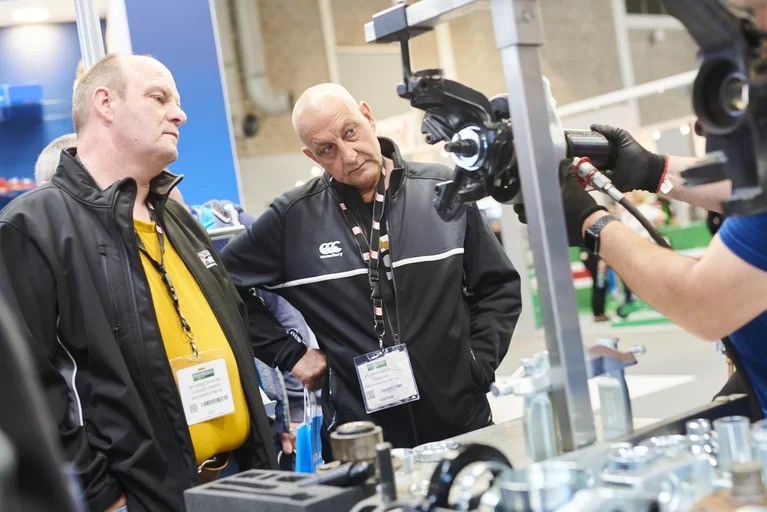Car parts giant Unipart Automotive will appoint administrators this morning, with predicted job losses estimated to be between 1,200 and 1,300.
CAT understands that KPMG are to be in charge of winding the company up. Attempts to find a buyer for the whole company over the past two weeks have failed. However, Andrew Page in a joint deal with The Parts Alliance to save 33 branches and around 350 related jobs from the former group.
We’ll bring you more news as it breaks.










I joined Godfrey Holmes Ltd in 1963 and received a brilliant management training that propelled my career through engine reconditioning (another defunct industry) into Volkswagen UK parts distribution, then Mazda UK parts distribution and national after sales management for several car manufacturers where I profitably fought back against the ‘non-genuine’ parts distributors named above by securing dealer ‘loyalty’. But my final act before leaving the car industry in 1988 was to found Automotive Distributors Ltd which became the leading Far East ‘non genuine’ parts distributor. I sold it to its management for £760,000 in 1988 who sold it on for £25m in 2012! So making money from the unofficial aftermarket can still be achieved if you take care to work out who the customers are, what they want and then deliver it.
Unipart launched in 1970. I was there when John Egan kicked it off. The distributors (Rover, Triumph or Jaguar franchise holders) who had been forcibly embraced into a marriage of sorts with BMC considered this scheme to some degree, a waste of time and money and typical of BMC. Another set of parts catalogues and more changes of part numbers. British Leyland trying to introduce to the marketplace a competitor to the likes of Brown Brothers, Edmunds Walker etc through the franchised car distributor and dealer network. Initially the scheme was stillborn.
@Mall – I think you’re close but not totally correct.
I believe UPA failed because they were a large, national company, but with a much smaller £200m pa turnover. Obviously – profit pays your bills, and even in an ideal world, with the biggest margins possible – you’re going to struggle to pay those large overheads with limited turnover – add a competitive marketplace, fast growing competitors stealing your turn over – and your profit drops further. Leaving even less money to pay those bills until your at the bottom, with nothing left bit to throw the towel in!
GSF are stuck, without the capital to expand (and thus hit this problem) ECP are at the other end of the scale with a much healthier turnover, and in turn a profit which can pay those big bills – however what’s happening to Page’s? They are nearly at the UPA size (with only a slightly larger turnover) – how are THEY going to pay their bills? Will ECP strangle them further? Will they run into the same problem in the next 2 years?
unfortunately cheaper quality imports drive prices down to their lowest common denominator, many times customers have complained the cost of the parts i have fitted could have been purchased elsewhere for cheaper. customers are not willing to pay for the service,quality or warranty. internet has not helped either. just my opinion
Truly awful that so many good people are to lose their jobs due to totally inept upper management who were clueless about the motor trade, but will probably come out of this with plenty in the bank and another job to go to.
Other factors and buying groups take note: The eternal chase for the pot of gold that is these big national accounts, your efforts may end in the same way (via homere). Forget Kwikfit, Halfords et al; good quality, decent independents are were the real solid business lies. Unipart completely forgot that and paid the ultimate price.
Well said parts boy. Lost their way decades ago. What about the suppliers owed money?
A flawed business model? The demise of Unipart Automotive shows that the format of multiple depots offering national distribution, backed by a central warehouse, head office, regional management etc is doomed to fail. The costs are simply too high with no real economy of scale. Think about it, they have all gone – Godfrey Holmes, Affiliated Factors, Edmunds Walker, Autela, Brown Brothers, Partco, Express Factors, Unipart, Lucas, probably missed out a few others?
No doubt others will look to fill the void. They will face the same issues – too many depots, not enough stock in each, not enough staff so stressed and poorly motivated managers, all trying to `give it away` with instant delivery to garages.
The city kept well away from the UK aftermarket following the Finelist debacle. Only in recent years have the finance boys come back, I guess as a result of reading the Lookers report about the aftermarket being counter cyclical and I suppose with construction and the high street being depressed, they would not have been around to witness Finelist so thought they needed a stake in this industry.They will walk away again when they realise it is a tough industry with little or no fat to trim, poor margins, high costs and no chance of getting the level of return they expect.
Suppliers need to be very careful and impose strict credit limits backed by insurance. As this has shown, no company is too big to fail. Many are probably `too fat to fly`. Stick to supporting good independents that pay their bills.